In today’s digital age, adequate data privacy and compliance management is a regulatory necessity and a strategic imperative for businesses across all sectors. As organizations’ digital footprint expands, so does the complexity of safeguarding sensitive information. The stringent and ever-evolving landscape of global data protection regulations compounds this complexity.
Privacy Management Platforms (PMPs) emerge as vital tools in this context, transcending their role as mere software solutions to become foundational elements that orchestrate the intricate dance of data privacy management. These platforms enhance the ability of organizations to not only comply with laws but also to leverage compliance for competitive advantage.
This blog post delves into the transformative role of PMPs in shaping data privacy strategies, illustrating how they streamline operational processes, foster regulatory compliance, and support the broader objectives of governance, risk management, and compliance (GRC). Through a comprehensive exploration of PMPs, we will uncover how these systems can simplify the complex tasks associated with data privacy and ensure rigorous adherence to the myriad of legal and regulatory requirements, thereby enabling businesses to maintain trust, ensure security, ensure compliance, and achieve sustainability in the digital marketplace.

Understanding Data Privacy Software
Definition and Importance
Data privacy software is an essential technological solution for organizations navigating the complex landscape of global data privacy compliance regulations such as the General Data Protection Regulation (GDPR) in Europe, the California Consumer Privacy Act (CCPA) in the U.S., and other similar laws worldwide. These tools and privacy programs are crucial for several reasons:
- Automated Detection of Personal Data: Data privacy software employs advanced algorithms to scan and identify personal information across an organization’s various data repositories. This includes structured data, like databases, and unstructured data, like emails and documents, ensuring comprehensive data coverage.
- Classification of Data: Once detected, personal information is classified based on its sensitivity and the privacy requirements governing it. This classification is critical as it dictates how data should be handled, who can access it, and the security measures needed.
- Protection of Personal Information: Data privacy software implements controls to protect sensitive data following detection and classification. This may include encryption, access restrictions, and other security measures tailored to the data’s classification level.
- Regulatory Compliance: These tools are designed to help organizations comply with privacy laws by providing features like consent management, data subject access request (DSAR) handling, and breach notification procedures. They also automate the generation of compliance reports and maintain audit trails, which are indispensable during regulatory body inspections.
- Risk Reduction: Data privacy software minimizes the risk of human error, a significant factor in data breaches, by automating key privacy processes. It also ensures that data handling practices are consistently applied across the organization, reducing non-compliance risk and associated penalties.

What is a Privacy Management Platform (PMP)?
Definition and Functions
A Privacy Management Platform (PMP) is a more comprehensive system that integrates various aspects of privacy management into a cohesive framework and centralized platform. Designed to support organizations throughout the lifecycle of privacy data management, PMPs provide a multifaceted approach to privacy data discovery and project management:
- Resource Allocation: PMPs enable organizations to allocate both human and technological resources where they are most needed, optimizing the use of assets and ensuring efficient project execution.
- Task Scheduling and Workflow Automation: These platforms automate workflows and schedule tasks based on project timelines and priorities. This includes automating repetitive tasks, thus freeing up team members to focus on more complex aspects of privacy management.
- Stakeholder Communication: PMPs facilitate seamless communication across all levels of an organization. This ensures that everyone involved in a privacy project, from IT to legal teams, has real-time access to relevant information and can collaborate effectively.
- Monitoring and Reporting: With built-in monitoring tools, PMPs track the progress of data privacy initiatives and generate detailed reports on various aspects such as compliance status, project milestones, and overall performance against predefined objectives.
- Advanced Analytics: Some advanced PMPs come equipped with sophisticated analytics tools that analyze large volumes of privacy data to identify trends, forecast potential compliance issues, and provide actionable insights for decision-makers.
- Variability in Scope and Capability: PMPs vary greatly in their capabilities, ranging from basic platforms suitable for small to medium-sized enterprises (SMEs) to highly advanced systems designed for large organizations with complex data privacy needs. The choice of a PMP should align with the organization’s specific requirements, considering factors like the volume of data handled, the complexity of the data environment, and the regulatory landscape.

Benefits of Implementing a Privacy Management Platform (PMP)
Implementing a Privacy Management Platform (PMP) brings a multitude of benefits that streamline and enhance the management of data privacy within an organization. Below, we explore each benefit in greater depth, highlighting how PMPs transform the way businesses handle customer data, privacy and compliance.
Enhanced Collaboration and Communication
A PMP centralizes data governance and simplifies communication across all levels of an organization, which is crucial for the successful management of data privacy projects:
- Centralized Communication Hub: PMPs act as a single source of truth, housing all communications, documents, and project updates in one place. This centralization ensures that everyone, from IT staff to legal advisors, has access to the same information, reducing inconsistencies and misunderstandings.
- Elimination of Information Silos: By integrating data across departments, PMPs prevent the formation of information silos that can obstruct transparency and hinder effective data management. This integration fosters a more collaborative environment where data and insights are readily shared across teams.
- Enhanced Stakeholder Engagement: PMPs improve engagement by providing stakeholders with tailored dashboards and access to relevant project information, facilitating better decision-making and increased accountability.
Real-time Updates and Notifications
The dynamic capabilities of PMPs to provide real-time updates and notifications of user consent are critical in maintaining the agility of data privacy management software:
- Immediate Information Sharing: Real-time updates ensure that all team members are promptly informed about changes, required actions, or potential risks, which is crucial for the rapid response times required in data privacy management.
- Proactive Issue Resolution: With instant notifications, teams can quickly address emerging challenges before they escalate, thereby maintaining project momentum and reducing downtime.

Efficient Task Management
PMPs enhance productivity through streamlined task management, automated data discovery, providing clear structure and oversight to complex data privacy compliance projects:
- Clarity in Roles and Responsibilities: Clear delineation of tasks and responsibilities prevents overlap and confusion, ensuring that team members understand their specific roles within a project.
- Enhanced Productivity: With tasks clearly mapped out and progress trackable in real-time, teams can work more efficiently, focusing their efforts where they are most needed without redundant or duplicated efforts.
Task Prioritization
Effective task prioritization and vendor risk management is a cornerstone of successful project management, particularly in compliance-driven projects:
- Critical Task Identification: PMPs help teams identify and prioritize tasks that have the most significant impact on compliance and risk management, ensuring these are addressed first to maintain legal and regulatory compliance.
- Dynamic Re-prioritization: As project scopes evolve, PMPs allow for the dynamic re-prioritization of tasks, adapting to new information or changes in the regulatory landscape without disrupting the overall project flow.
Resource Optimization
Optimizing resource allocation policy management is another key advantage offered by PMPs:
- Strategic Resource Allocation: PMPs enable managers to allocate resources more strategically, ensuring that human and technological assets are utilized to their fullest potential based on real-time project demands.
- Bottleneck Identification: By analyzing workflow and resource usage data, PMPs identify bottlenecks and redistribute tasks and resources effectively to avoid delays and maximize efficiency.
Improved Risk Management
Managing data collection risks proactively is crucial in data privacy management:
- Early Risk Detection: PMPs provide tools to identify risks at early stages, allowing for immediate mitigation strategies to be implemented, which can prevent minor issues from becoming major setbacks.
- Continuous Risk Assessment: Ongoing risk assessment capabilities ensure that as new data privacy threats emerge, they are recognized and addressed swiftly, keeping the organization’s data security posture robust.
Enhanced Reporting and Documentation
Robust reporting access controls, data retention policies, and documentation are essential for transparency and compliance:
- Automated Reporting: PMPs automate the creation of detailed reports on project progress, resource allocation, and compliance status, which are invaluable during audits and reviews.
- Documentation Consistency: With standardized templates and automatic documentation updates, PMPs ensure that all records are consistent, up-to-date, and compliant with legal standards.
- Audit Readiness: Automated documentation and easily accessible reports prepare organizations for audits with minimal additional preparation, reducing the stress and workload associated with audit processes.

FAQs about Implementing a PMP for Data Privacy Software
Implementing a Privacy Management Platform (PMP) can be a pivotal step in enhancing data privacy practices and data processes for any organization. Here’s a deeper look at the key aspects and the specific benefits for various business contexts.
Key Features to Look For
When selecting a PMP for data privacy projects, there are several critical features to consider to ensure the platform meets your organization’s data retention needs effectively:
- Robust Task Management: This includes features that allow for detailed task creation, assignment, and tracking. Look for a platform that allows for the customization of workflows to match your organization’s specific processes and privacy requirements. Effective task management should also support the prioritization of tasks based on their impact on compliance and risk.
- Real-time Communication Tools: A PMP should include integrated communication tools such as messaging, task comment threads, and automated alerts. These tools help maintain a continuous and transparent dialogue between team members and departments, which is crucial for dynamic and complex data privacy tasks.
- Risk Management Capabilities: Identifying, assessing, and mitigating risks is crucial. A good PMP provides tools for risk assessment, such as risk scoring systems, visual risk heat maps, and automated alerts for when data privacy risks reach a critical threshold.
- Comprehensive Compliance Tracking: The platform should offer features that support compliance tracking with relevant data privacy regulations. This includes tools for documenting actions taken, audit trails, and compliance reporting features that help demonstrate adherence to laws like GDPR or CCPA during audits.
Compliance
PMPs can significantly streamline compliance management in several ways:
- Centralized Documentation: PMPs provide a single repository for all compliance-related documents, simplifying, maintaining, updating, and retrieving compliance documentation when needed.
- Automated Compliance Tasks: By automating repetitive compliance tasks, PMPs reduce the likelihood of human error and free up team members to focus on more strategic compliance challenges.
- Efficient Monitoring and Reporting: PMPs can generate crucial compliance reports during audits and regular reviews, ensuring that all compliance activities are thoroughly documented and easy to review.
Small Businesses
For small businesses, PMPs offer particular advantages:
- Cost Efficiency: Small businesses can benefit from the cost efficiencies provided by PMPs, as these systems can reduce the need for large compliance teams by automating many compliance and privacy management tasks.
- Scalability: Many PMPs are designed to scale with the business. They start with basic features suitable for smaller operations and can be expanded to include more sophisticated tools as the company grows and its data privacy needs become more complex.
- Tailored Solutions: Some PMPs offer modular designs, allowing small businesses to choose only the needed features without paying for unnecessary extras.
Remote Collaboration
PMPs enhance remote collaboration through several vital functionalities:
- Shared Workspaces: These are digital platforms where remote teams can collaborate as if they were in the same physical space, discussing issues, sharing documents, and updating project statuses in real-time.
- Accessibility: Cloud-based PMPs can be accessed from anywhere, providing flexible work options and ensuring team members can collaborate effectively, regardless of location.
- Integration with Other Tools: Many PMPs can seamlessly integrate with other remote work tools, such as video conferencing and file-sharing services, creating a cohesive remote working environment.
Integration
Integration capabilities are a crucial aspect of PMPs:
- Compatibility with Existing Systems: The best PMPs can integrate smoothly with existing IT systems and software, such as CRM systems, HR databases, and cybersecurity tools, centralizing data management and reducing the risk of data leaks.
- Automation of Data Privacy Tasks: Integration allows for data flow automation between systems, ensuring that data privacy management tasks such as data mapping and risk assessments are updated in real-time with the latest data inputs.
- Enhanced Data Control: Effective integration consolidates data control points, making it easier to apply privacy controls consistently across all platforms and ensuring that compliance standards are uniformly maintained.

Conclusion
Integrating a Privacy Management Platform (PMP) into an organization’s data privacy program and compliance strategy is more than an upgrade—it is a transformational shift that brings about profound structural, operational, and strategic benefits. PMPs instill a robust framework that enhances organizational efficiency, fosters transparency, and facilitates seamless collaboration across various functional areas. This structured approach simplifies the intricate processes involved in managing vast arrays of personal and sensitive data and significantly amplifies the clarity with which organizations can approach compliance and risk management.
By streamlining communication, centralizing key data points for incident management, and automating complex compliance tasks, PMPs enable businesses to navigate the complexities of data privacy with unmatched confidence and agility. Optimizing resource utilization ensures that human and technological assets are leveraged in the most effective manner, thereby reducing waste and increasing productivity. Furthermore, PMPs’ advanced compliance tracking breach management capabilities ensure that organizations remain abreast of evolving regulations, thus mitigating legal risks and enhancing their compliance posture.
Adopting a PMP can revolutionize how a business handles data privacy, transforming it from a reactive, check-box exercise to a proactive, strategic function that adds value and supports business growth. Organizations that embrace this technology will stay compliant, their data assets more secure, and maintain a competitive edge in an increasingly data-driven world. In conclusion, deploying data privacy management software is a crucial step for any forward-thinking organization that seeks to uphold the highest data privacy standards while promoting operational excellence and sustaining business innovation.



